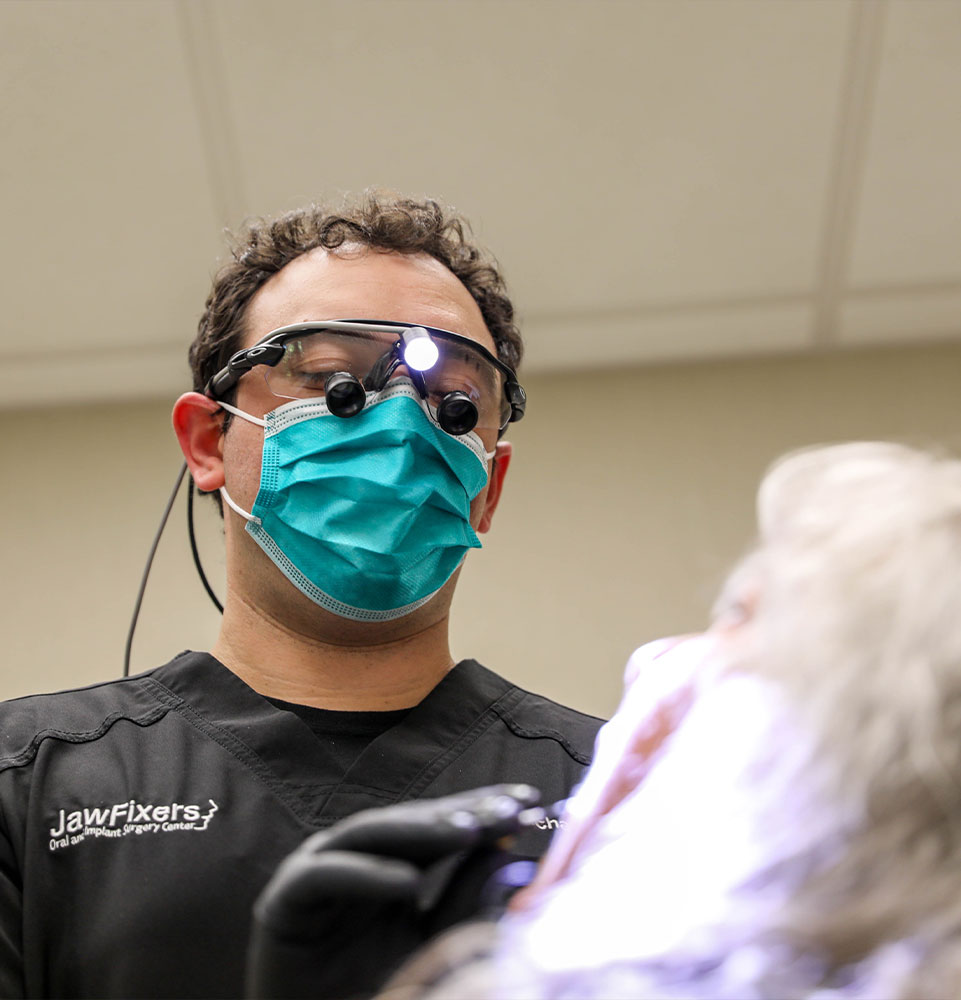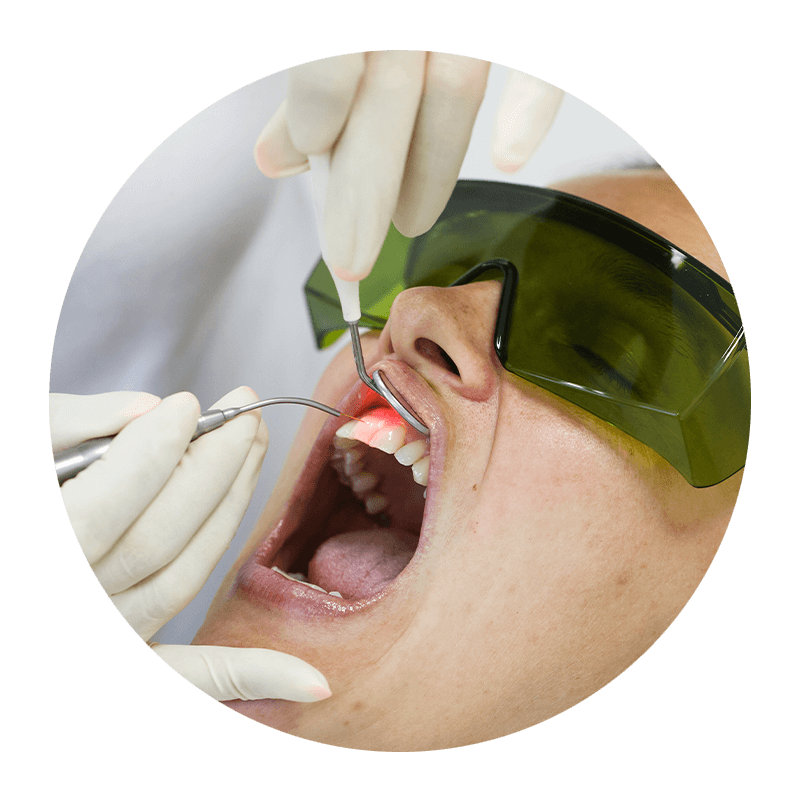Failing Dental Implants - Hartford County, CT
Are Your Dental
Implants at Risk?

What Causes Dental Implants to Fail?
Dental implants are a long-term solution to replacing missing teeth, offering incomparable benefits to your well-being and lifestyle. But what happens when failing dental implants threaten your oral health and smile? Certain factors or conditions may lead to failing dental implants, including poor oral hygiene, excess dental cement, smoking and diabetes, all of which may contribute to a serious condition known as peri-implantitis, the leading cause of failing dental implants. Improper placement of each dental implant is also a contributing factor to dental implants becoming unstable, which is why we recommend you have your implants placed by an experienced oral surgeon you can trust. Early identification of a dental implant problem like peri-implantitis and treatment from our skilled team of oral surgeons can save failing dental implants, and your tooth replacement investment.

Signs & Symptoms
Save Failing Dental Implants
Our team understands the importance of saving failing dental implants, and the investment you have made in your smile. We offer advanced laser and traditional peri-implantitis treatment from our comfortable Manchester and West Hartford, CT, facilities.

Laser Peri-Implantitis Care
We save failing dental implants by vaporizing bacteria and diseased tissue in dental implant sites and stimulating bone regeneration. Dental lasers offer a minimally invasive approach, with an expedited recovery and return to proper oral health. Our high-powered laser targets areas of concern while keeping surrounding areas intact.

Non-Laser Peri-Implantitis Care
In some cases, a traditional approach may be appropriate to restore health to your dental implant sites. This method involves mechanical debridement (removal) of necrotic tissue and bacteria from around failing dental implants and may incorporate medications to help control harmful bacteria from within these sites.
Schedule An Appointment
I understand the information disclosed in this form may be subject to re-disclosure and may no longer be protected by HIPAA privacy regulations and the HITECH Act.

